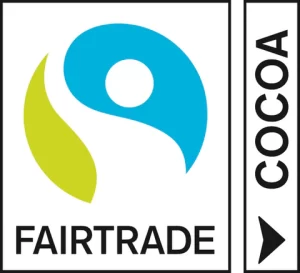
What Is Fair Trade Chocolate
Introduction to Fair Trade Chocolate
Fair Trade Chocolate is a movement that seeks to improve the lives of cocoa farmers by ensuring they are paid fair wages for their labour, have safe working conditions, and work in environmentally sustainable practices. The Fair Trade certification guarantees that the chocolate you buy comes from a supply chain that upholds these standards. The cocoa used in Fair Trade chocolate is often grown by small-scale farmers and cooperatives in developing countries, such as West Africa, Latin America, and Southeast Asia.
 Fair Trade certification involves meeting rigorous social, environmental, and economic criteria, promoting respect for human rights and ethical business practices. The Fair Trade movement is especially important for the cocoa industry, which has been plagued by exploitation, child labour, and environmental damage. The aim of Fair Trade is to create a more just and equitable global trading system for farmers and workers in the chocolate supply chain.
Fair Trade certification involves meeting rigorous social, environmental, and economic criteria, promoting respect for human rights and ethical business practices. The Fair Trade movement is especially important for the cocoa industry, which has been plagued by exploitation, child labour, and environmental damage. The aim of Fair Trade is to create a more just and equitable global trading system for farmers and workers in the chocolate supply chain.
The Challenges in the Cocoa Industry
The cocoa industry, despite its massive global demand, faces numerous challenges. These issues primarily stem from the unequal distribution of wealth, poor working conditions, and environmental degradation. Here are some of the most pressing problems:
- Low Wages and Poverty: Cocoa farmers are often paid very low prices for their crops, leaving them in poverty. The average cocoa farmer earns just $1 a day, far below the global poverty line. Despite the chocolate industry being worth over $100 billion annually, the farmers who grow the key ingredient, cocoa, remain underpaid and struggle to make ends meet.
- Child Labor and Exploitation: The cocoa industry has been notorious for child labour, with an estimated 1.56 million children working on cocoa farms in West Africa alone. Children are often subjected to hazardous working conditions, including handling dangerous chemicals, carrying heavy loads, and working long hours, all of which deny them their right to education and a healthy childhood.
- Environmental Impact: Traditional cocoa farming methods contribute significantly to deforestation, biodiversity loss, and soil degradation. Unsustainable farming practices, such as slash-and-burn agriculture, are used to clear land for cocoa plantations. The lack of proper land management also harms local ecosystems and contributes to climate change.
- Inequality in the Supply Chain: Cocoa farmers typically receive only a fraction of the final price paid for chocolate products. This results in an inequitable distribution of profits along the supply chain, with farmers bearing the brunt of the financial strain while multinational corporations reap the rewards.
How Fair Trade Chocolate Helps Address These Problems
Fair Trade certification aims to tackle these issues by promoting fairness, transparency, and sustainability throughout the cocoa supply chain. Here’s how it works to address some of the most significant challenges:
- Fair Wages and Economic Stability: Fair Trade-certified cocoa farmers are guaranteed a minimum price for their beans, which helps protect them from volatile market fluctuations. This minimum price ensures that farmers can cover the cost of sustainable farming and invest in their communities. Additionally, the premium farmers receive under Fair Trade certification is invested in community development projects, such as schools, healthcare facilities, and infrastructure.
- Eliminating Child Labor: Fair Trade certification strictly prohibits the use of child labor and sets clear standards for fair working conditions. Farmers who are part of Fair Trade cooperatives are required to adhere to these standards, ensuring that children can attend school instead of working on farms. The certification also supports education initiatives in cocoa-growing regions.
- Sustainable Farming Practices: Fair Trade supports sustainable farming practices that protect the environment. This includes organic farming methods, agroforestry (growing cocoa alongside other plants), and soil conservation techniques. These practices help reduce deforestation and protect biodiversity. Additionally, Fair Trade promotes climate change adaptation by providing farmers with resources and training to manage environmental risks.
- Transparency and Traceability: Fair Trade ensures transparency in the cocoa supply chain by requiring brands to disclose where their cocoa comes from. This allows consumers to make informed choices about the products they buy. Traceability helps eliminate the risk of exploitative practices and ensures that cocoa is sourced from farms that adhere to Fair Trade principles.
The Importance of Sustainable Chocolate
While Fair Trade chocolate plays a vital role in improving the lives of cocoa farmers, the broader concept of sustainability goes beyond social and economic issues to encompass environmental responsibility. Sustainable chocolate goes hand in hand with Fair Trade practices but also focuses on long-term environmental health.
Sustainable chocolate is produced in ways that protect the environment and promote the health of ecosystems. This includes not only using Fair Trade-certified cocoa but also ensuring that production practices minimize waste, reduce energy consumption, and mitigate climate change impacts. Here are key aspects of sustainable chocolate:
- Reducing Environmental Impact: Sustainable chocolate brands focus on minimizing their carbon footprint, using eco-friendly packaging, and reducing water usage. Many sustainable chocolate brands work with farmers to implement regenerative agricultural practices, such as composting, cover cropping, and organic farming, which help restore the soil, reduce the need for harmful pesticides, and enhance biodiversity.
- Supporting Biodiversity: Sustainable chocolate production often involves agroforestry, where cocoa is grown alongside other crops and trees. This supports biodiversity and reduces the pressure on forests. By using sustainable farming techniques, farmers help preserve the natural habitats of wildlife and prevent deforestation.
- Ensuring Long-Term Viability: Sustainability in the cocoa industry also means supporting the long-term viability of the industry itself. By promoting environmental stewardship, sustainable chocolate ensures that cocoa farmers can continue producing crops without depleting natural resources. This helps protect the future of cocoa production for generations to come.
The Growing Demand for Ethical Chocolate
There has been a noticeable shift in consumer demand for ethical and sustainable products, including chocolate in recent years. According to a 2020 survey, 65% of consumers in the U.S. said they are willing to pay more for sustainable products, and 45% of consumers actively seek Fair Trade-certified products when shopping for food.
This growing interest in ethical chocolate is helping drive changes in the industry. Many major chocolate brands are beginning to adopt Fair Trade practices and improve the sustainability of their cocoa sourcing. The rise of ethical consumerism is also fostering innovation, with new brands entering the market that focus exclusively on sustainable, Fair Trade chocolate.
Why Choose Fair Trade and Sustainable Chocolate
Choosing Fair Trade and sustainable chocolate is a way to make a positive impact on the lives of cocoa farmers, the environment, and the chocolate industry as a whole. Fair Trade ensures that farmers are paid fairly and that child labour is eliminated, while sustainable chocolate practices safeguard the planet’s future.
While challenges remain, the growing demand for ethical chocolate can drive systemic change, encouraging the entire industry to adopt more responsible practices. By supporting Fair Trade and sustainable chocolate brands, consumers can help create a world where cocoa farming is both economically viable for farmers and environmentally responsible for future generations.
Key Statistics
- Over 1.5 million children work in cocoa farms in West Africa, a major concern for child labor.
- Fair Trade premium contributions help improve community infrastructure and access to education for cocoa farmers.
- Sustainable chocolate practices, such as agroforestry, help reduce deforestation, with some cocoa farms seeing a 30% reduction in carbon emissions.

